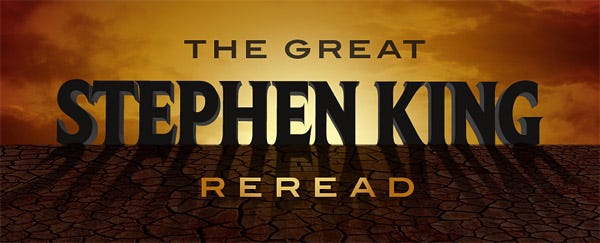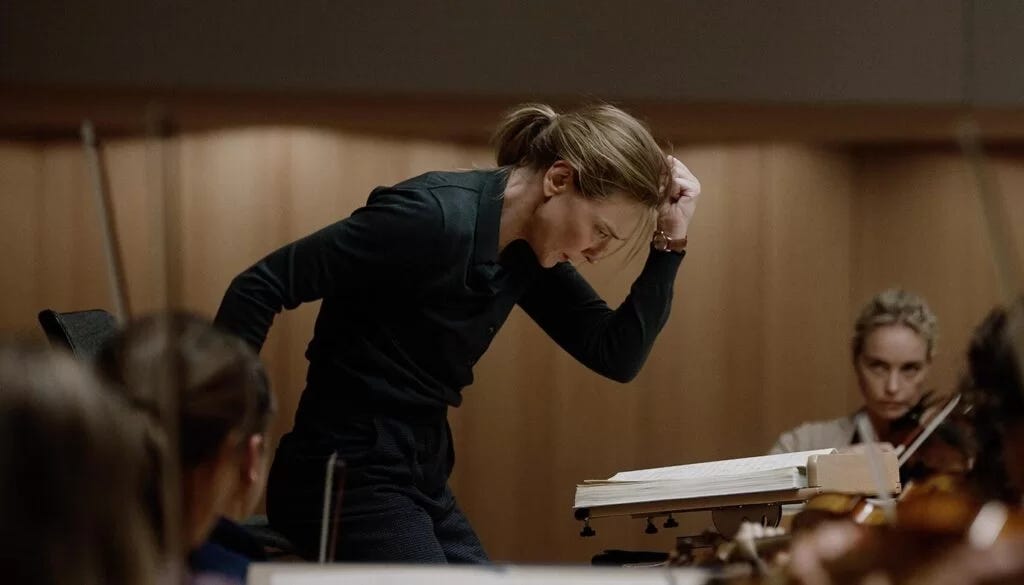“Make your own Bible. Select and collect all the words and sentences that in all your readings have been to you like the blast of a trumpet.” -Ralph Waldo Emerson
Next week, I’m going on vacation. My hope was to publish another piece before leaving, preferably something substantive for you to mull over while I’m relaxing on a Hawaiian beach.1 Well, at risk of repeating myself, I apologize. There is no new post; ceci n’est pas un post. The return of Emersonian Bible, my now-recurring series of news, quotes, recommendations, and reader reactions, will have to do.
That said, the last three weeks haven’t been wasted. I’ve been outlining a longform fiction project – a novel, or at least what I hope will be a novel – that I expect to start drafting once I’m back home. Though that project will soon be taking up a lot of my writing time, I’ve also been reading and researching for future essays for this space. At least one should appear here later this month.
I’ve always been transparent about my intent to experiment with this space, but lately I’ve begun to feel that its true character is finally taking shape. I feel I still have more to say on the decline of the literary novel, but I’m also interested in examining some surprising links I’ve found between that highfalutin’ stuff and the genre fiction – particularly horror fiction – that I’ve been aiming to write. So, lots of stuff I’m excited about on the horizon, which is nice.
Daily Devotional
Unanimity pisses me off immensely. Whenever I realize that the whole world agrees on something, whenever I see that the whole world is cursing something in chorus, something rises to the surface of my skin that makes me reject it. They’re probably infantile traumas. I don’t see it as something that makes me proud.
Novels provide readers with something to read. At their best writers change the way readers read. That seems to me the only realistic expectation. It also seems to me quite enough. Reading novels is a deep and singular pleasure, a gripping and mysterious human activity that does not require any more moral or political justification than sex.
Writing fiction is for me a fraught business, an occasion of daily dread for at least the first half of the novel, and sometimes all the way through. The work process is totally different from writing nonfiction. You have to sit down every day and make it up. You have no notes – or sometimes you do… but the notes give you only the background, not the novel itself. In nonfiction the notes give you the piece. Writing nonfiction is more like sculpture, a matter of shaping the research into the finished thing. Novels are like paintings, specifically watercolors. Every stroke you put down you have to go with. Of course you can rewrite, but the original strokes are still there in the texture of the thing.
Recommendations
Grady Hendrix’s Great Stephen King Reread
I have never seen Grady Hendrix, and not for lack of trying. His last reading at my local bookstore was so crowded they were cramming us between the shelves. I was close enough to hear, but, in the moment, all I could see was the art history section and a phalanx of other slightly disgruntled attendees. Thankfully, it was still a good time; I suppose there are worse ways to learn about haunted houses (and How to Sell a Haunted House).
Much more visible than Hendrix himself is his “Great Stephen King Reread,” an essay series covering (nearly) all of King’s novels from Carrie to Revival, with the short story collection The Bazaar of Bad Dreams thrown in for good measure. Spanning a stretch of Hendrix’s career that saw him rise from semi-obscurity to become one of the U.S.’s most popular authors of horror fiction – not unlike how my own interest in Stephen King contributed to my transformation from Literally Just Some Guy to Literally Just Some Guy Who Occasionally Posts on Substack – each of these essays gives King the kind of thoughtful and incisive critical attention he deserves but so rarely receives. I’m not always in complete agreement with Hendrix’s perspectives (I could quibble with his dismissal of The Dark Half, and about Mr. Mercedes he’s simply dead wrong), but the series at its best functions as all good criticism should, increasing readers’ understanding of and appreciation for the work at hand. Essential reading for all fellow King-heads.
Tar (2022)
For a movie about “cancel culture,” Todd Field’s Tár isn't much interested in depicting bad behavior. Unlike, say, 2014’s Whiplash, which meticulously catalogs its subject’s abuses in anticipation of his inevitable downfall, Tár focuses less on the acts that lead to cancellation than the social forces that produce it. The film’s treatment of its subject inverts the Whiplash approach, swapping brash, in-your-face clashes and tirades for a mostly quiet, subtle, and meditative character study – albeit one of equal intensity.
Tár begins by establishing its hero, composer-conductor Lydia Tár (Cate Blanchett), as a truly exceptional figure. Her composure, ability, and passion for her art appear limitless; she is as capable a spouse and parent as she is a musician, public figure, and cultural ambassador. But these images of Lydia are, naturally, illusory. Cracks are soon revealed in the façade, layers of artifice peeled back, until whispers and rumors of her behind-the-scenes behavior explode into public view on a wave of outrage and bad press.
Is this simply a case of justice done, an abuser outed and disposed of? Or is Lydia’s ouster itself a kind of injustice, the malformed result of intergenerational culture clash and institutional ass-covering? It’s to the film’s credit that these questions are never definitively answered. Lines have certainly been crossed, but their exact placement is blurred. Tár lives in the gray areas and unknowns – and is all the better for it.
The most compelling thing about the film, though, may be its disturbing suggestion that significant artistic achievement is in some sense conjoined with “cancellable” behavior. Left unchecked, the same drive and passion that drives the Lydia Társ of the world to success risks producing insensitivity, neglect, or outright abuse – a risk that only grows with time.
Individuals are responsible for how they treat others. Of course they are. But, as Tár reveals, the solution to a problem like Lydia Tár is not as straightforward as it might first appear. Perhaps the character of great artists, combined with the realities of our culture-making institutions, all but ensures both the creation and destruction of figures like Lydia. Perhaps, Tár suggests, the occasional abuses of such figures are an inevitable cost of doing business, a kind of tax on the very idea of transcendent art. Perhaps, Tár suggests, the vitality of the arts depends to some extent on monsters.
This is an impossible problem; Tár does not purport to solve it. But, in its willingness to probe, interrogate, and explore urgent cultural questions, to show an ostensible villain both at her most and least sympathetic, and to continually challenge the viewer’s preconceived ideas of the state of American art, it makes for consistently compelling viewing. Lydia Tár is dead; long live Lydia Tár.
Reader Reactions
I think Christine is the extremely rare (and perhaps only) example of a Stephen King movie being better than the book. I love King, but the man can't end a fucking book to save his life. Christine (the novel) just goes on and on and on, and I'm just like, "Just end already!" I feel this way about a lot of King books, but I think Christine is particularly egregious in the manner. The movie is tight, succinct, narratively propulsive, incredibly engaging, and genuinely emotionally heartfelt. These are not cardboard characters - they really feel like real people, and the relationship between Arnie and Dennis very sweet and tragic. It almost feels a little homoerotic to me, but that's also viewing it from a contemporary lens; back then I don't think they were thinking about that though, they were just writing two really sweet guys that cared about each other. Not everything was viewed through politics and identity (I say all this as a gay man, by the way).
Anyway, this comment is getting out of control. All of which is to say, I appreciated this post. I have also become interested in trying my hand at writing horror fiction, which is why I initially started following you. I think part of what I struggle with is my intense interest in character, and less interest in Plot (and, frankly, my inability to be very creative in that area, whereas as both a psychologist in real life, and a massive consumer of books and movies, characterization comes much easier).
Pretty spot-on critique of the culture industry mate. My field is music, the same thing has happened to the Classical scene albeit many cats in the genre seem to either not comprehend this or simply don’t care. Jazz is caught in the margins but at least those cats tend to see the writing on the wall and what they should do about it to adapt, survive, and hopefully grow when possible. Other popular forms have yet to enter the Ivory tower forthright, but all forms suffer at the forced eclecticism and alienation of audiences by the hands of Internet over-access.
Your writing voice is very compelling. I want to read McCarthy now, haha.
As always, the comments on this post are an open thread – leave your own quotations, recommendations, and reactions below.
We’ll be in Oahu, but I have to acknowledge the heartbreaking scenes that have been coming out of Maui. If you can, please consider donating to the Maui Food Bank or an organization doing similar work.





